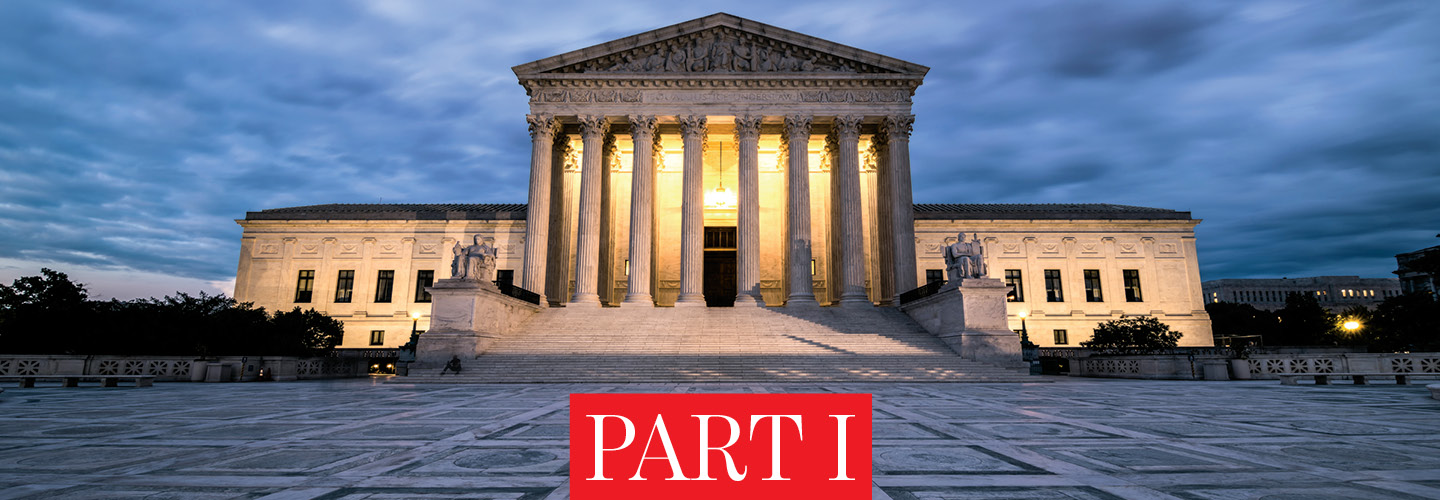The Supreme Court of the United States has had the last word on some of the most important legal questions in American history: Can separate ever really be equal? Is flag burning protected by our right to freedom of speech? Is the death penalty a “cruel and unusual punishment”?
And though it may seem like the nine justices—who deliberate in secret and serve lifetime appointments—live in a world far removed from your own, many of the cases they decide directly affect you, both as a teen and as a student.
In a landmark 1967 case known as In re Gault (“in re” is Latin for “in reference to”), which concerned the arrest of a 15-year-old boy named Gerald Gault, the Supreme Court established for the first time that teenagers have distinct rights under the Constitution. Since then, the justices have ruled on a variety of issues involving people under 18—from freedom of speech and privacy rights at school to protections for minors in the legal system.
This two-part article examines 10 of these cases and why they matter to you. Here are the first five cases.
The Supreme Court of the United States has had the last word on some of the most important legal questions in American history. That includes: Can separate ever really be equal? Is flag burning protected by our right to freedom of speech? Is the death penalty a “cruel and unusual punishment”?
The nine justices do most of their work in secret and serve lifetime appointments. It may even seem like they live in a world far removed from your own. But many of the cases they decide directly affect you, both as a teen and as a student.
A landmark 1967 case known as In re Gault (“in re” is Latin for “in reference to”) concerned the arrest of a 15-year-old boy named Gerald Gault. In it, the Supreme Court ruled for the first time that teenagers have distinct rights under the Constitution. Since then, the justices have ruled on a variety of issues involving people under 18. That includes everything from freedom of speech and privacy rights at school to protections for minors in the legal system.
This two-part article examines 10 of these cases and why they matter to you. Here are the first five cases.

